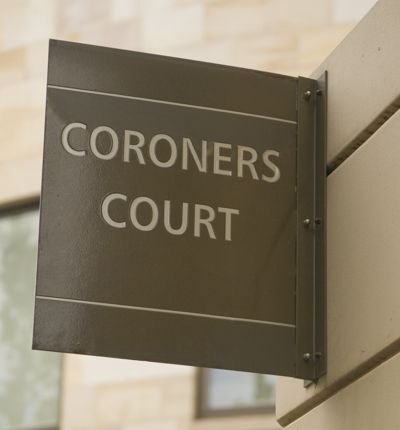
Inquest into death of Paul Coughlan concludes
A father took his own life eight days after being sent to prison for the first time, an inquest into his death heard.
Posted on 11 September 2025
Paul, of Hartcliffe in Bristol, died aged 49 on 16 May 2023, having been remanded into prison custody at HMP Bristol on 8 May 2023. Paul suffered from slurred speech and memory loss following a severe brain injury in 2013.
The inquest took place between 1 and 5 September 2025 at Avon Coroner’s Court before Assistant Coroner Robert Sowersby and a jury.
Following the evidence, the jury recorded a conclusion of suicide.
Paul’s family raised concerns around the management of his risk of suicide and self-harm by prison and healthcare staff.
An Article 2 inquest examined whether there had been failure by the state to protect Paul’s life, with a jury asked to consider whether safeguarding from the prison was adequate.
This included an examination of the Assessment, Care in Custody and Teamwork (ACCT) process, which is in place to monitor and safeguard prisoners at risk of suicide and self-harm.
Paul was placed into the ACCT process on the day of his arrival into prison custody on 8 May 2023. However, this process was closed at his first ACCT case review the following day, on 9 May 2023.
The jury heard evidence that information received from outside of prison about Paul’s risk of suicide and self-harm was not recorded and used appropriately.
A suicide and self-harm warning, including information about a previous suicide attempt, attached to Paul’s Digital Prisoner Escort Record (DPER) was not recorded onto the prison’s central IT system (NOMIS).
The jury also heard that an email received by the prison’s mental health team from the court’s mental health service (known as Advice and Support in Custody and Court - ASCC) was not recorded in NOMIS either, despite it including reports of low mood, suicidal ideation and expression of a plan.
Prison staff involved with the ACCT process denied being aware of the concerns raised by ASCC.
The jury was asked to consider whether objective risk factors were given adequate weight when assessing Paul’s risk of suicide. The jury heard that the national policy in place at the time recognised the following objective risk factors as applicable to Paul: first time in custody, early days in custody, seriousness and nature of offence, vulnerability due to his brain injury, a history of suicidal ideation and self-harm, and a history of substance abuse.
The jury heard that Paul had two appointments scheduled with healthcare at the prison following the closure of his ACCT, but that neither appointment went ahead. The jury were asked to consider whether these amounted to missed opportunities.
Following deliberation by the jury, the conclusion was recorded as suicide. Despite evidence of insufficient documentation being acknowledged by the jury, it found that those failings had not contributed to Paul’s death.
Leigh Day solicitor Maya Grantham, who represented Paul’s daughter Maddie, said:
“Despite the jury’s findings, the family feel strongly that there were significant shortcomings in how Paul’s safeguarding was handled, which if corrected could have prevented his death. The inquest provided an opportunity to publicly examine those- including the inadequate assessment and monitoring of Paul’s self-harm risk. We hope that lessons are learned from this tragic event, and that safeguarding processes are more diligently followed in future.”

Coroner calls for better guidance for prisons on hooch and medication following death of prisoner
A coroner has raised concerns over the lack of guidance and national policy for prisons on dealing with illicitly brewed ‘hooch’ alcohol and the handling of medication, following the death of a Portsmouth man in HMP Guys Marsh prison.



